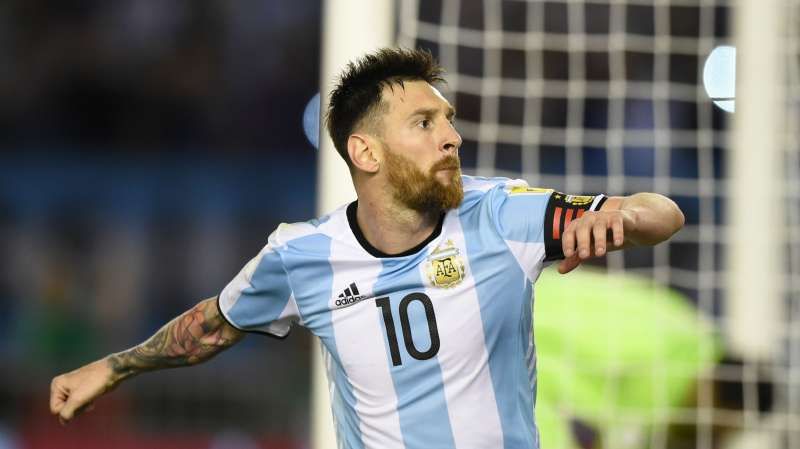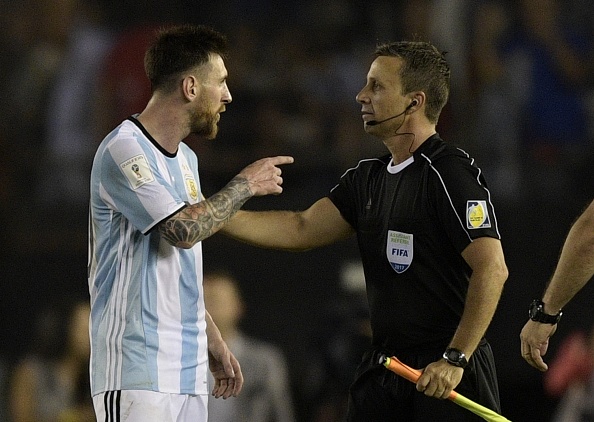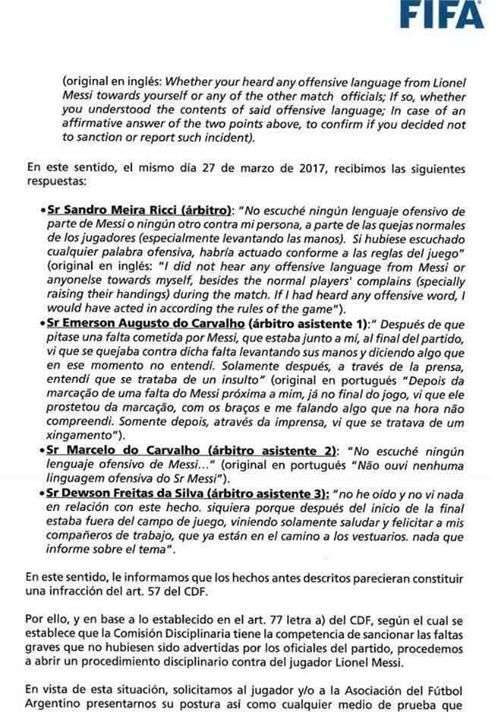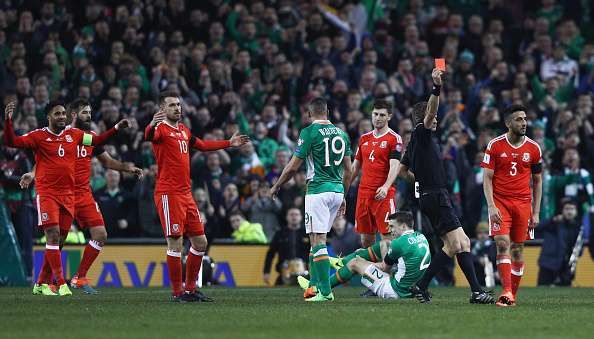
Why Lionel Messi's four-match ban is a disgrace
On the 9th of January, The Best FIFA Football Awards gala was held in Zurich. The Best Awards were FIFA’s reply to France Football Magazine’s Ballon d'Or Gala after their partnership had ended. To no one’s surprise, FC Barcelona decided not to fly a delegation over to Zurich to receive any of the awards, and in a statement claimed that they were prioritising preparations for their game against Athletic Bilbao.
It was embarrassing for FIFA as four of the FIFPro World XI were FC Barcelona players and the customary photo of the World XI looked empty without any of the Barcelona players. Furthermore, Lionel Messi was in the top 3 of The Best FIFA Men’s Player Award, and even though he did not win, he snubbed the most prestigious men’s award and FIFA was obviously insulted.
This snub was reminiscent of Real Madrid under Jose Mourinho who had cited similar reasons in 2011. However, anyone with even the remotest knowledge of football would know about FC Barcelona’s long-standing spat with FIFA.
Also Read: Lionel Messi banned for 4 matches by FIFA for hurling abuse at officials
Fast forward two months and we see the decision has hit Messi, Argentina, and FC Barcelona hard. The Argentine, arguably the greatest player to ever grace the football field, was accused of hurling abuses at the referee’s assistant, Marcelo Van Gasse, in a World Cup Qualifying Game against Chile. Now, I’m not condoning the fact that he did that, but what followed was an almost embarrassing series of events that would not be expected from an organisation like FIFA (or, would it?).
Messi’s behaviour in the match was hardly exemplary – towards the end of the match, he reacted angrily to the decision to award a foul against him and allegedly verbally abused the referee’s assistant. He even refused to shake the official’s hand at the full-time whistle. FIFA has been trying to crack down on offences against referees but those efforts have not been sustained. So many verbal insults go unpunished on a daily basis.
There needs to be consistency in the application of rules, and not random and sporadic that seem to be more like acts of revenge than anything else. Messi deserved to be reprimanded for his disrespectful behaviour with a fine or even a warning. What he did not deserve, however, was a four-match ban.
To put that ban into perspective, Zinedine Zidane’s headbutt earned him a three-match ban in 2006. And that was after he was sent off in the World Cup Final! A three-match ban for a headbutt for which the player was sent off in the FIFA World Cup Final. Compare that to a four-match ban for allegedly abusing an official that wasn’t reported in the post-match referee report.
Daniele De Rossi was banned for four matches after he elbowed Brian McBride in the face, an action that left the American requiring stitches. Was Messi’s verbal assault more severe than the headbutt, or as severe as the De Rossi’s elbow? I think not.
In the post-match referee report, none of the referees mentioned anything along the lines of being abused by Messi. In fact, it wasn’t until the Chilean FA brought it to the attention of FIFA that they decided to act. Neither the referee’s report nor the assistants acted on the pitch. Perhaps they just passed it off as an insignificant detail from the match, or maybe they actually didn’t hear anything.
Furthermore, it is CONMEBOL’s job to look into violations such as these. The World Cup Qualifiers, while being a FIFA event, are organised by CONMEBOL. Now, one might argue that CONMEBOL is a part of FIFA, and essentially, if CONMEBOL is investigating into a matter, then technically, FIFA is, too. But, the fact that none of the senior CONMEBOL executives were consulted is baffling.
This seems to be an extremely intelligent and planned political move by the Football Federation of Chile. Chile have had players receive bans for similar incidents and hence had a precedent to report. Moreover, the Argentinian Football Association (AFA) have been in turmoil for a long time now – which meant that even if they wanted to appeal the ban, they would not be able to mount a sufficient defence due to the crisis in the AFA.
The Football Federation of Chile also seems to have more of a pull than the AFA in FIFA, which explains why FIFA, and not CONMEBOL, took on the case. Chile, at that time, was sitting two points behind Argentina and were extremely close to dropping out of the automatic qualification spots.
Chile are in 4th place while Argentina is in 5th and without Messi, the entire Argentinian team falls flat – that was what the Chileans realised. And it was true. This move was not out of concern for the referee, it was because they wanted their closest rivals to fall out of the race for qualification to the World Cup.
Also Read: Lionel Messi denies abusing officials, claims comments were directed at the air
While reviewing the match, FIFA requested the officials to provide any details as to whether they heard offensive language from Lionel Messi towards themselves or any of the match officials. Sandro Meira Ricci, the match official, reiterated the fact that he had not heard any verbal abuses from Messi towards himself and if he had, he would have taken action.
The referee’s first assistant, Emerson Carvalho, stated, “After a foul committed by Messi, who was next to me, at the end of the game, I saw that he complained against the fault by raising his hands and saying something that I did not understand at the time. I only realised he was swearing at me afterwards.”
However, even though he realised that Messi had abused after the match, he did not add this to the referee report. If the referee report had been submitted, he should still have reported it to the relevant authorities. His reluctance to report it just shows how prevalent cursing is in the game and how the referees take it with a pinch of salt.
If referees were to report each incident of them being on the receiving end of abuses, a lot more players would be serving bans. In fact, Jean Beausejour of Chile should have been banned as well for using offensive language in the same game. All of these just incidents just prove how trivial FIFA's case is.
“After a foul committed by Messi, who was next to me, at the end of the game, I saw that he complained against the fault by raising his hands and saying something that I did not understand at the time. I only realised he was swearing afterwards.”
But, the best was saved for the last. FIFA, without informing Argentinian Football Association, decided to take a page from Donald Trump's book of histrionics and announce it on their Twitter handle five and a half hours before their match against Bolivia.
To put it in the words of Jonathan Wilson, “Announcing a suspension 5-and-a-half hours before a game is absurd. You need to give teams a fair chance to prepare.”
One must also keep in mind that this was the same night Wales defender, Neil Taylor, put Seamus Coleman's career in jeopardy with a challenge that fractured the Welshman's foot. As it stands, Neil Taylor will only serve a one-match ban for the red card he received while FIFA decides on the length of the suspension. How is it that Messi has already been suspended for four matches while FIFA is still deciding on what to do with Taylor?
The rules of the game were primarily designed to protect players from horrid challenges, and while I do believe that referees deserve more respect, protecting referees from harsh words should not take precedence over protecting the players.
FIFA is setting an amazing precedent here, and if it does not adhere to this standard of punishment each time a player hurls an abuse at a match official, then it would be safe to say that the very thing governing football, is destroying it.
Gianni Infantino-led FIFA is no different to Sepp Blatter’s FIFA.
This seems like a targeted and premeditated attack on Messi and Argentina football.



